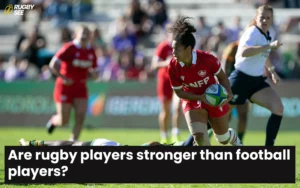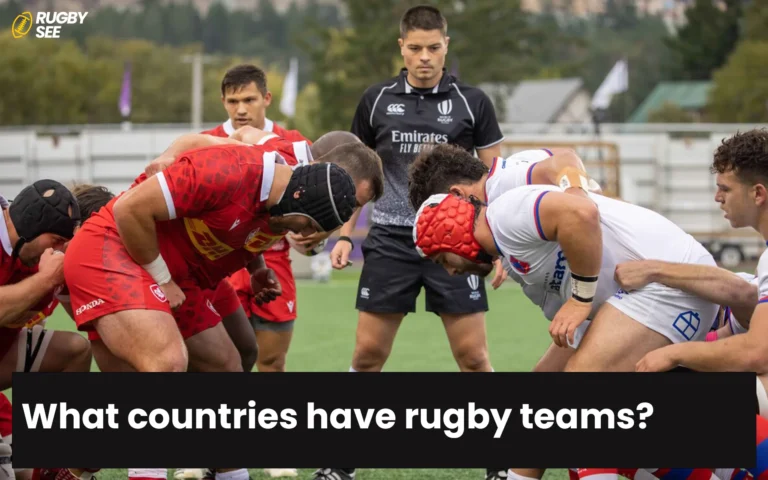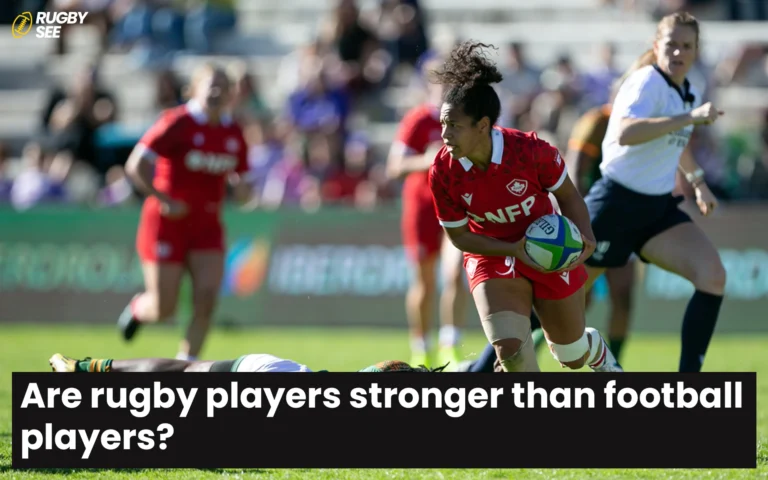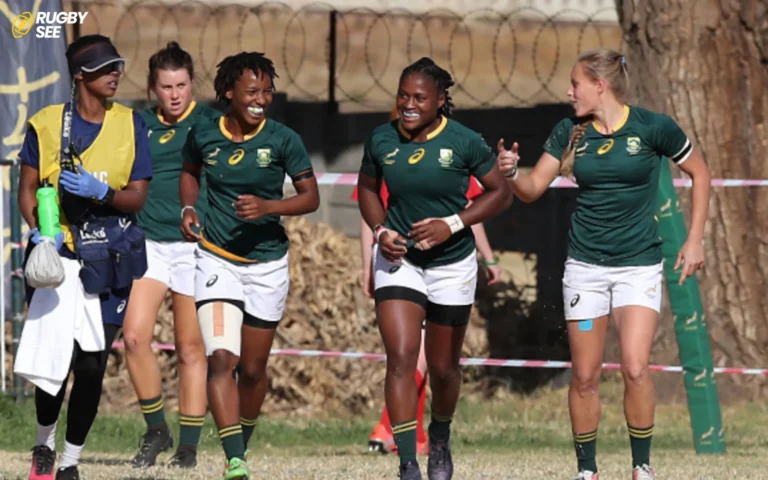In the dynamic world of sports, each discipline has its own set of traditions, rules, and unique characteristics that often pique the curiosity of fans and spectators. Rugby, with its rich history and deep traditions, is no exception. One of the strange aspects that often leads to questions is the absence of players’ names on their jerseys. Unlike many team sports where players’ names are prominently displayed on the back of their jerseys, rugby generally avoids this practice. This article from Rugbysee explores the reasons for this tradition and examines cultural, historical and practical factors.
The Roots of Tradition
Rugby’s origins date back to the 19th century, a time when sports were played primarily for leisure and camaraderie rather than commercial or entertainment purposes. In these early days, it was common for players to be recognized by their physical presence or position on the field rather than by a name on a shirt. This tradition has largely persisted, emphasizing the sport’s values of teamwork, unity, and collective effort over individual recognition.
The Emphasis on Team Over Individual
One of the core reasons for the absence of names on rugby shirts lies in the sport’s ethos. Rugby places a strong emphasis on team performance and solidarity. The idea is that no individual is greater than the team. By not displaying names on shirts, the sport reinforces the concept that success on the field is achieved through collective effort, not individual prowess. This tradition fosters a sense of unity and equality among players, with the focus squarely on the team’s emblem and colors as the primary identifiers.
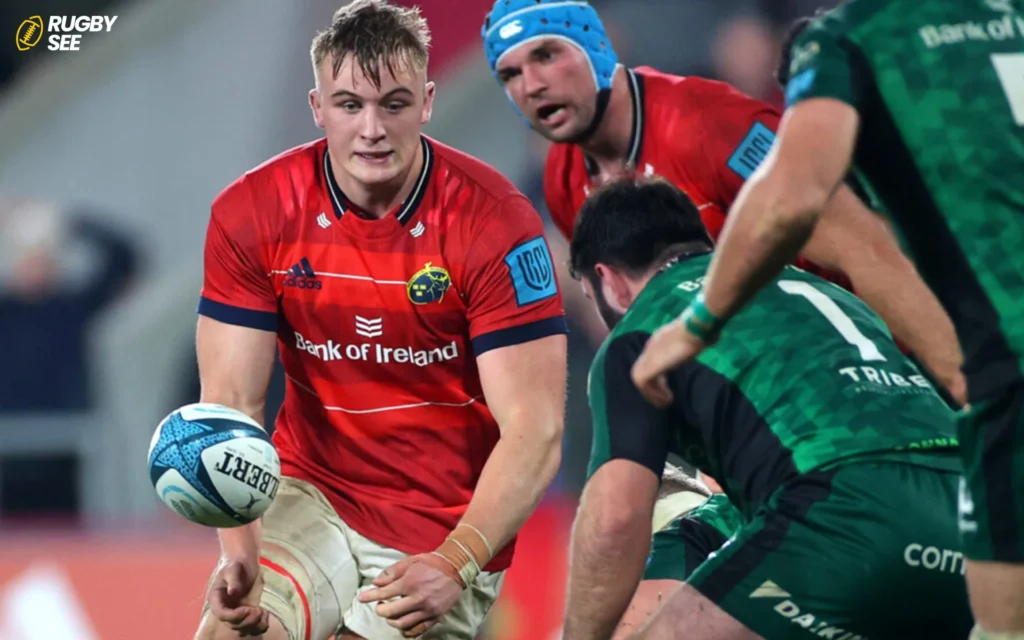
Practical Considerations
Aside from the cultural and philosophical reasons, there are also practical considerations that contribute to the lack of names on rugby shirts. Rugby is a high-contact sport, involving intense physical engagements like tackles, scrums, and mauls. Names on shirts could easily become obscured or damaged, rendering them unreadable during the course of a game. Moreover, the tradition of exchanging shirts after matches, a gesture of respect and sportsmanship, is facilitated by the anonymity of the jerseys.
The Role of Numbers and Positions
In rugby, players are traditionally known by their positions and associated numbers rather than their names. Each number corresponds to a specific position on the field, providing clarity and simplicity in the heat of the game. This system allows players, referees, and fans to quickly identify players’ roles and responsibilities, maintaining the sport’s fast-paced nature and strategic depth and if you want to know about the person That invented Rugby read Who Invented Rugby League? Exploring the Origins of Rugby League.
Exceptions and Modern Adaptations
While the tradition of not displaying names on rugby shirts is prevalent, there are exceptions, particularly in professional leagues and international competitions where player identification becomes crucial for fans, commentators, and broadcasters. In these contexts, names may appear on shirts to enhance spectator experience and media coverage. Additionally, the advent of social media and digital platforms has increased the visibility of players, making them more recognizable to fans worldwide.
The Debate and Future Directions
The tradition of not having names on rugby shirts is not without its detractors. Some argue that displaying names could enhance fan engagement, make the game more accessible to newcomers, and provide additional marketing opportunities for clubs and players. As rugby continues to evolve, balancing tradition with the demands of a modern, global audience will be crucial. Whether this will lead to a widespread adoption of names on shirts remains to be seen, but for now, the tradition stands as a testament to the sport’s enduring values and heritage.
Continuing from where we left off, let’s delve further into the nuances of this tradition and its implications for the world of rugby.
Cultural Significance and Global Perspective
The tradition of not having names on rugby shirts not only speaks to the sport’s rich history but also to its global reach. Rugby is played in various forms around the world, from the traditional 15-a-side game to the faster-paced sevens variant. Each culture has embraced rugby and its traditions in its unique way, yet the common thread of emphasizing the team over the individual remains a universal principle. This global consensus on the importance of team unity reinforces the sport’s collective ethos and sets rugby apart from many other team sports.

The Impact on Fans and Community Engagement
While the absence of names on shirts may seem to pose a barrier to player recognition, it has, in many ways, fostered a deeper level of fan engagement. Rugby fans are known for their passionate support and deep knowledge of the game, including the ability to recognize players by their playing style, position, and number. This level of engagement creates a strong bond between players and fans, with the focus on the team’s achievements rather than individual stardom. Clubs and national teams often foster this connection through community events, meet-and-greets, and social media, further bridging the gap between players and fans.
The Role of Media and Technology
As media coverage and technology have evolved, so too has the way fans interact with rugby. Live broadcasts, instant replays, and digital platforms offer fans unparalleled access to the game and its players. Commentary teams often provide in-depth analysis and player backgrounds, enriching the viewing experience. Advanced statistics and player tracking technologies have also made it easier for fans to follow their favorite players, understand their contributions to the game, and appreciate their roles within the team, even without names on their shirts and if you want to know about getting in shape For Rugby read How to get in shape for rugby.
Sustainability and Merchandising
Another aspect to consider is the impact of this tradition on sustainability and merchandising. Rugby jerseys without names can be timeless, allowing fans to wear their gear for years, regardless of player transfers or retirements. This not only fosters a sense of long-term loyalty to the team but also aligns with the growing emphasis on sustainability in sports apparel. From a merchandising perspective, jerseys without names are universally appealing, enabling fans to identify with the team as a whole rather than individual players, thereby promoting a more inclusive and unified fan base.

Future Considerations
As rugby continues to grow globally, the conversation around player identification and fan engagement evolves. The balance between maintaining tradition and adapting to modern expectations is a dynamic and ongoing process. Innovations in broadcasting and digital media, along with shifts in fan demographics and consumption habits, may influence how traditions like not having names on rugby shirts are perceived and preserved. The challenge lies in respecting and honoring the sport’s heritage while ensuring it remains accessible and engaging for new generations of fans worldwide.
The absence of names on rugby shirts is a distinctive aspect of the sport, rooted in its history and values. It reflects rugby’s emphasis on team over individual, unity, and collective effort. While practical considerations and the sport’s evolving landscape may influence future practices, this tradition serves as a reminder of rugby’s unique ethos and camaraderie. As rugby continues to grow and adapt to the changing sports landscape, the balance between maintaining traditions and embracing innovation will remain a central theme. Nonetheless, the essence of rugby, characterized by teamwork, respect, and sportsmanship, will undoubtedly continue to define the sport, with or without names on shirts.


